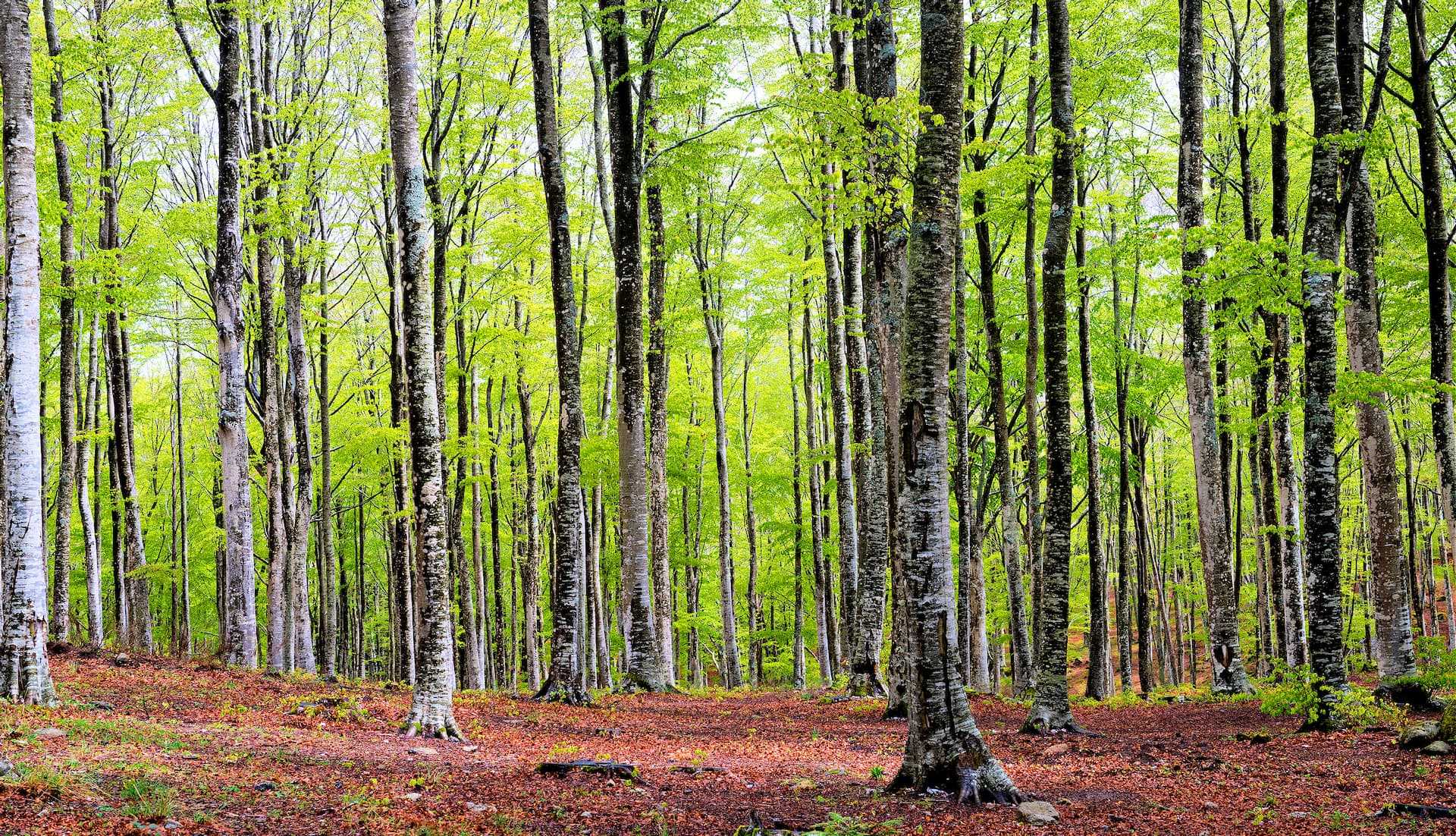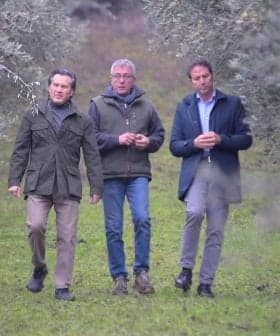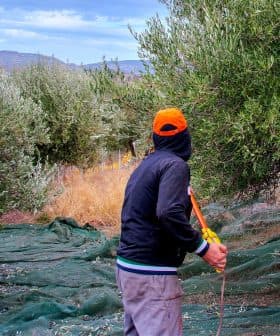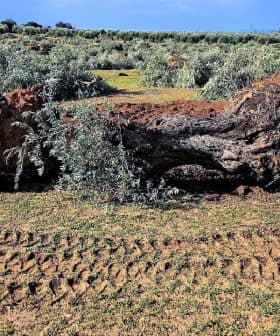Europe Announces Plan to Plant 3 Billion Trees by 2030

The European Union Forest Strategy aims to plant three billion more trees in Europe by 2030, with farmers being encouraged to establish new forests through appropriate support levels and compensation for costs. While the strategy emphasizes the role of forests in sustainability, challenges such as potential loss of cropland and protecting new forests from foreign pathogens must be addressed to ensure the success of the initiative.
Farmers throughout Europe could play a pivotal role in the success of the new European Union Forest Strategy, which asks member states to plant three billion more trees on the continent by 2030.
“Member states can encourage farmers to establish new forests by setting appropriate support levels for payments, compensating both the establishment and maintenance costs,” a European Commission source told Olive Oil Times.
The strategy emphasizes how every citizen, private organization and public institution is welcome to participate in the reforesting effort. However, the commission said that farmers’ commitment to the strategy could significantly enhance the chances of reaching the ambitious target given their knowledge of their land.
See Also:Deforestation and Industrial Agriculture Spur Zoonotic Diseases, Study FindsIn this scenario, one of the main issues may be the potential loss of cropland in favor of new forestry areas.
“Member states can set the length for the commitment period for an annual premium per hectare to cover the costs of agricultural income foregone and maintenance,” the European Commission sources said. “Under the current programming period, it is 12 years, and under this commitment period, the afforested land remains eligible for direct payment.”
According to the commission, the opportunities for farmers and land managers will grow due to the Carbon Farming Initiative, with which Brussels hopes to trigger efficient and eco-friendly carbon-trapping development models.
This initiative said the commission, “will aim to promote further a new green business model that rewards climate and environmentally friendly practices by land managers, including forest managers and owners, based on the climate benefits they provide.”
“The remuneration of mitigation efforts through incentive payments or the generation of tradable carbon certificates will create a new business model that provides a new source of income to farmers, foresters and land managers who implement sustainable activities leading to carbon removals and storage,” the commission added.
The E.U. paper on the Three Billion Tree Initiative emphasizes the essential role of forests in the sustainability of human activities. Forests are ecosystems that provide water regulation, disaster risk reduction, soil stabilization and erosion control while also being a source for air and water purification, food, medicine, recreation and income.
The initiative further stated the critical role of urban vegetation and trees, the increase of which will also be implemented as a strategic target.

Tuscany, Italy
A substantial part of the E.U. forestry effort will be delivered through the means of the new Common Agricultural Policy (CAP), recently agreed upon by E.U. member states.
“The new delivery model of the future CAP will give member states more flexibility and will therefore make it possible for them to better take into account local conditions and needs,” the European Commission sources said.
According to the commission, “beyond the possibility of traditional afforestation, support can be received for establishing agroforestry systems, combining tree growing with either pastoral or arable cultures.”
The resulting forestry management will allow farmers to participate in the forest initiative while still being eligible for compensation and payment provided by the CAP.
While the olive tree is considered agricultural production and falls outside the scope of the E.U. Forest Strategy, the commission emphasized how “specific actions in support of this type of production can be included in the new National Strategic Plans that the member states are preparing in the context of the new CAP.”
Still, the three billion tree target will have to take into account and resolve significant problems plaguing E.U. forests.
“Unlike almost all continents, in the European Union, forests have been growing in the last decades,” Leonardo Bianchini, co-owner of the arborist consultancy Urban Trees Management, told Olive Oil Times. “But if that happens, it is also due to the abandonment of croplands.”
“The colonization by forests of former farming areas is creating a series of simplified and delicate forestry ecosystems,” he added. “Those are prone to pathogens, are not resilient and are often at risk of fueling wildfires.”
According to Bianchini, the new planting projects will have to be carefully evaluated by choosing the suitable locations and the right species, considering the following maintenance operations, their costs and adopting adequate fire prevention measures.
“New trees can absorb and capture carbon dioxide, that is true, but only if they stay healthy and find the right conditions to grow,” he said.
While the core of the European project is to contribute to tackling challenges brought on by climate change, the deployment of the trees themselves does not constitute a guarantee for success.
See Also:Europe Plans to Triple Agricultural Land Dedicated to Organic Farming by 2030“What we see now is that the climate instability is heavily affecting vegetation and trees, putting them under great stress which directly affects their health,” Bianchini said.
He added that tree nurseries will play a significant role in the success of the initiative.
“It will be very relevant to select high-quality nursery material; forestry tree specialized nurseries should receive incentives for producing material with specific genetic characteristics which have also been grown under specific protocols,” Bianchini said.
One of the main issues will be protecting new European forests from the many foreign pathogens spreading across the continent.
“We are now facing bacteria and pests coming from abroad,” Bianchini said. “We should probably do much more than we currently do in the European Union to limit the import of organic plant materials or even wooden artifacts.”
While the E.U. paper on the Forest Strategy does not mention such a measure, it confirms the relevance of careful forestry planning.
“The pledge of three billion additional trees will be carried out with a long-term planning and monitoring scheme,” the commission said. “This will ensure that the trees are not only planted but are also allowed to grow over time and thrive in a changing climate.”
Most initiatives will be carried out locally by associations of citizens, companies and public entities. Still, the European Commission intends to “count and monitor” the progress as the planting project unfolds.
“It will provide political and technical support, communication and labeling, and will work alongside the European Environmental Agency on a user-friendly counting and monitoring platform,” the commission said.
Brussels observed that this pledge “will not solve the climate nor the biodiversity crisis on its own.” Still, it aims “to increase forest coverage in the E.U. while respecting ecological principles, and improve the resilience of forests in the EU.”

“It includes commitments to strictly protect remaining E.U. primary and old-growth forests, ensure that forests are managed sustainably and improve the monitoring of E.U. forests,” the commission added.
Planting trees to combat climate change is becoming an important issue in many countries throughout the world.
In Ethiopia, the government has asked citizens to plant trees, and in the last two years, 27 million residents planted an astonishing 10 billion trees. According to Euronews, Addis Ababa hopes to double that number by the end of the next year.
A few months ago, the South Korean government launched its own Three Billion Trees initiative and plans to reach that target within the next 30 years.
Meanwhile, in Pakistan, new initiatives are cropping up to increase the country’s mangrove forests. In a recent televised speech, Prime Minister Imran Khan said that “from 2013 to 2018, we’ve grown a billion trees and now we are targeting to grow 10 billion trees.”
Many more countries, such as China and Brazil, are also working on reforestation plans.
However, in a recent paper published by the Yale School of Environment, Adam Welz acknowledged how some people fear that the current focus on tree-planting initiatives throughout the world could distract from protecting existing forests and reducing fossil fuel use.
Still, experts such as Bianchini and Wes Swaffar from the United States conservation organization American Forests believe that planting “the right trees in the right place” can still help carbon sequestration.
“Forests are the best nature-based solution to climate change,” Swaffar said. “Trees also provide many benefits to people, like improving health and creating [forestry-related] job opportunities.”









